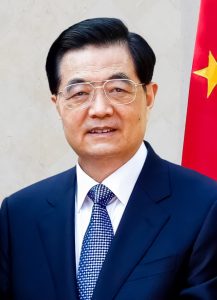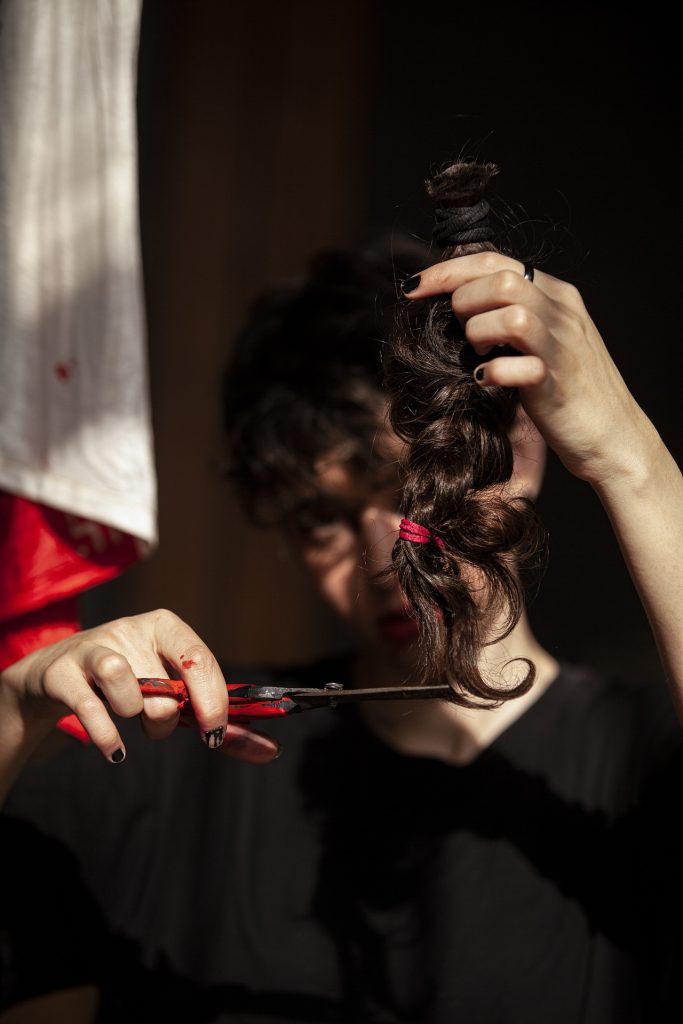How ‘industrial football’ was used to silence protests
Football is a colossal business in Turkey. The billion-dollar industry constitutes Europe’s sixth largest football economy. No wonder the so-called “beautiful game” wields such enormous cultural and political influence on Turks, many of whom define themselves by their loyalty to football clubs Galatasaray, Fenerbahçe and Beşiktaş.
All based in Istanbul, they’re known as “the big three”, but since the nationalist-Islamist AK Party came to power in 2002, a flurry of other teams, from Trabzonspor to Başakşehir, have risen to prominence, winning national cups and increasingly defining what modern Turkish football is. Unsurprisingly, these teams are government-supported – a prerequisite for any successful business in autocrat President Recep Tayyip Erdoğan’s “New Turkey”.
Just a decade ago, though, anti-government sentiment defined Turkish football. During the opening ceremony of Galatasaray’s fancy new stadium in 2011, Erdoğan greeted fans, expecting gratitude for his role in building the new venue. Instead, boos rose from the terraces.
“It’s a key moment in modern AK Party-era Turkish football,” said Patrick Keddie, who chronicled the tale of Turkish football in his 2018 book The Passion: Football and the Story of Modern Turkey.
“He expected to be welcomed and thought he would bask in fame, but ended up getting booed… It was around this time that things began to turn. There was this shift from the liberal early-era AK Party to something much more authoritarian and repressive.” Turkish football in those years, Keddie noticed, was “utterly politicised on every level”, from activists using the game’s national prominence to voice their political anger, to Erdoğan talking up his semi-professional football background for political gain. “There was this mythology of him as a former player.”
That 2011 incident, so crushing for an ex-footballer, marked the culmination point of several changes that began in 2002. Acting
out of financial self-interest, the government started knocking down stadiums in city centres and replacing them with enormous new ones, subsequently building a dozen more, in the suburbs, in association with Toki, Turkey’s public housing body.
Despite such tactics, cronies of the AK Party noticed how impenetrable the “big three” culture remained. Defending the republic’s ideals, fans of those teams largely hated the party’s oppressive project of Islamist nationalism. So the government began criminalising, imprisoning and demonising dissident fans and managers through a flurry of court cases.
First came the “match-fixing scandal”. In the summer of 2011, Erdoğan’s prosecutors began investigating football matches they
accused of being fixed. On 10 July 2012, a state court ordered the arrest of 61 people. Among the managers and national team players held was Aziz Yıldırım, the strictly secularist president of Fenerbahçe – the club Turkey’s founder Mustafa Kemal Atatürk supported and which symbolises his modernising legacy. (A retrial process that began in 2015 cleared Fenerbahçe from all the charges; Yıldırım’s case was dropped in 2020.) Week after week, Fenerbahçe fans rushed to courts and, after sentencing, to prisons to show solidarity.
But it was the Beşiktaş fans – particularly the Çarşı group, named after the marketplace where Beşiktaş fans used to gather before matches for a drink – who played a crucial role in 2013’s Gezi uprising.
These Istanbul protests started as a movement against the development of the area, but quickly became a focal point of wider anti-government sentiment. Alongside environmentalists, leftists, liberals and other progressive millennials, Beşiktaş fans filled public squares and fought with the police.
Haldun Açıksözlü, an actor and author, wrote two books on Çarşı. “While growing up as a leftist in my youth, my passion for Beşiktaş grew, too,” he told Index. “I was part of Çarşı right from its inception.”
Rooted in the Ottoman Empire, Turkish football’s story begins with English residents of Salonica introducing the sport to Turks. The first matches were played in 1875. A football league was established in Istanbul in 1904, which soon extended into regional leagues in Anatolian cities and eventually the formation of the nationwide professional league. While Fenerbahçe and Galatasaray were known as teams of the bourgeoise and aristocracy, Beşiktaş was the team of cab drivers and the working classes.
Çarşı fans, Açıksözlü says, are famed for their cosmopolitanism and because they have a vital element of dissent. He said: “The group’s founders, from the early 1980s, were all leftists. Çarşı was a fan group that tilted football spectators toward leftist politics in the aftermath of the coup trauma of 12 September 1980. This leftist, communitarian perspective influenced me.”
But things turned when Beşiktaş’s 70-year-old stadium, İnönü (named after Atatürk’s closest ally in founding the republic), was demolished in 2013. “They made a mess of İnönü Stadium in the name of rebuilding it,” said Açıksözlü.
Erdoğan, who hates İnönü’s secularist politics, ended up excising the name of Turkey’s second president from Istanbul with this gesture.
Around this time, “the police and security forces began terrorising Beşiktaş fans”, said Açıksözlü. “Perhaps that was why Çarşı played such a prominent role in Gezi. The reaction creates reaction: the unnecessary use of tear gas by the police, their assault on Çarşı fans while they walked on streets with their families – these inevitably pushed Çarşı to the side of the sensitive people of Gezi.”
Açıksözlü describes Çarşı’s involvement in Gezi as an “incredible tale worthy of movies”. It began simply: 50 people walked from Beşiktaş to the nearby Akaretler neighbourhood. Their number grew to 100 at first and then grew to 1,000. When they walked up the hill and reached Gezi Park, the group numbered 2,500. “People heard their chants on the streets and joined in. Anyone who said they wouldn’t accept [living] under a one-man regime, wouldn’t accept state-intervention in their lives, sided with Çarşı,” he said.
Before Gezi, what Keddie – the British journalist – knew about Turkish football was clichéd: that it had crazy fans, that the big three Istanbul clubs hated each other. “I was surprised to see how prominent those fans were in the protests,” Keddie said. “They were on the forefront, fighting the police, manning the barricades.”
Still, the “big three” culture proved hard to penetrate for Keddie, who struggled with mingling with fans. “I think they’re insular and clannish and suspicious of outsiders – especially journalists.”
By the time Beşiktaş opened its new stadium on 10 April 2016, Keddie had noticed that Turkey’s political equation had changed dramatically. On the opening day, when Erdoğan sprinted and kicked a ball on the pitch, the stands were free of spectators. Even if they wanted to, nobody could boo him now.
When he visited the new stadium, Açıksözlü saw “airplane seats with special monitors attached to them”, and decided the old spirit of Çarşı was gone.
“There was this period, from 2011 to 2014, when the protest movement was quite intense,” Keddie said, “but by April 2016, most of the protests had died down or got more subtle for various reasons. Turkey didn’t have these major events, these major triggers, anymore. The biggest recent scandal of European football, the match-fixing case, 2013’s massive Gezi Park protests, and its aftermath – all of that had faded. With some exceptions, all forms of protest were essentially banned in Turkey.”
A significant factor behind the demise of Turkey’s protest culture was Passolig, an electronic ticket system the government introduced in 2014. “The electronic fan card Passolig was introduced as part of the country’s efforts to tackle hooliganism and violence in football,” announced the AK Party-run Anadolu Agency. “The new practice aims at a better identification of fans involved in violence in stadiums.”
In reality, Passolig was a cunningly conceived mechanism to detain dissident football fans. “Bringing in the Passolig card cowed many fans, and it made them think twice about protesting and even chanting because that system came with a whole load of security protocol and surveillance systems,” said Keddie.
It was much easier to identify anti-government protesters, ban them from stadiums and even charge and imprison them. “It was a response, the authorities said, to hooliganism and disorder, but most fans considered it a way to control them politically. It also gentrified the sport, making it more manageable, more middle class.”
Açıksözlü pointed to the formation of the 1453 group, a nationalist fans’ group, as another form of secret state intervention. “Specially assigned people were sent to Galatasaray’s Aslan Pençesi fan group and the Tek Yumruk group of Fenerbahçe. Their job was to stop fans looking at events from a leftist perspective.”
Anger soon melted into silence. Concern for security triumphed. Today, most fans wonder why they should risk their safety under an oppressive regime: Erdoğan sued more than 38,000 Turks for defamation between 2015 and 2021. Besides, for many devoted fans, it’s costly to go to matches at big clubs now. After Beşiktaş relocated, Çarşı had a much less prominent place in the new stadium. And outside the glossy new venues, Keddie observed, “the police are deployed in heavy numbers and they are happy to use violence whenever they need to”.
Açıksözlü said “industrial football” had destroyed the pleasures of the game. “Did you hear anything about Çarşı in the past five years? Did you read anything about other fan groups? Because of Passolig, the fan groups no longer influence Turkish football.” Still, the protest culture lives on, despite going underground. Fans can still be heard chanting about Atatürk, and when they sing the famed Izmir March, with lyrics including “Long live Atatürk! Your name will be written on a precious stone”, it’s a message directed at the Islamists.
Opposition politicians are playing ball, too. After a match between Galatasaray and the government-funded Başakşehir ended 2-0, the leader of the İYı Party, Meral Akşener, tweeted: “Galatasaray 2 -Erdoğan 0.” Many in Turkey call Başakşehir “Erdoğanspor”.
When another member of the opposition, Ekrem İmamoğlu, won Istanbul’s mayoral elections in 2019 but was refused the mandate after Erdoğan accused him of being a “terrorist”, a “liar” and a “thief”, the young politician, an ex-goalkeeper, visited football stadiums for support.
“Football is a big part of İmamoğlu’s brand,” Keddie said. “He was a goalie in his youth. So after the election was cancelled, he went to stadiums of the big three, pointedly avoiding smaller clubs, especially Başakşehir. Fans at those stadiums were chanting, ‘Give him the mandate’.” Once he was re-elected as mayor, İmamoğlu pledged to defend the interests of the big three.
Meanwhile, the “artificial success” of Başakşehir, Keddie said, may prove temporary. “I don’t see Başakşehir as really having power because they’re not an authentic, grassroots project. They don’t have many fans… It’s like a top-down project team; after all those years of investment and success in winning the league, they still get terrible attendances. It’s a cultural thing. Every other team sneers at them. Even people who support the government and support Beşiktaş or Galatasaray sneer at them.”
The AK Party may play dirty again, reject the results of next year’s presidential elections and invite their hardline supporters to
the streets to terrorise people. But then Turkey’s oppressed football fans can make a return, too, and protect Atatürk’s legacy.
“I spoke to a lot of people from Çarşı,” Keddie recalled, “and they said: ‘Yes, we’re against the government, and if something like Gezi happened again, we’d be there in a heartbeat.’”
Kaya Genç is Index’s contributing editor for Turkey. He is based in Istanbul.
This article appears in the autumn 2022 issue of Index on Censorship. To subscribe click here


